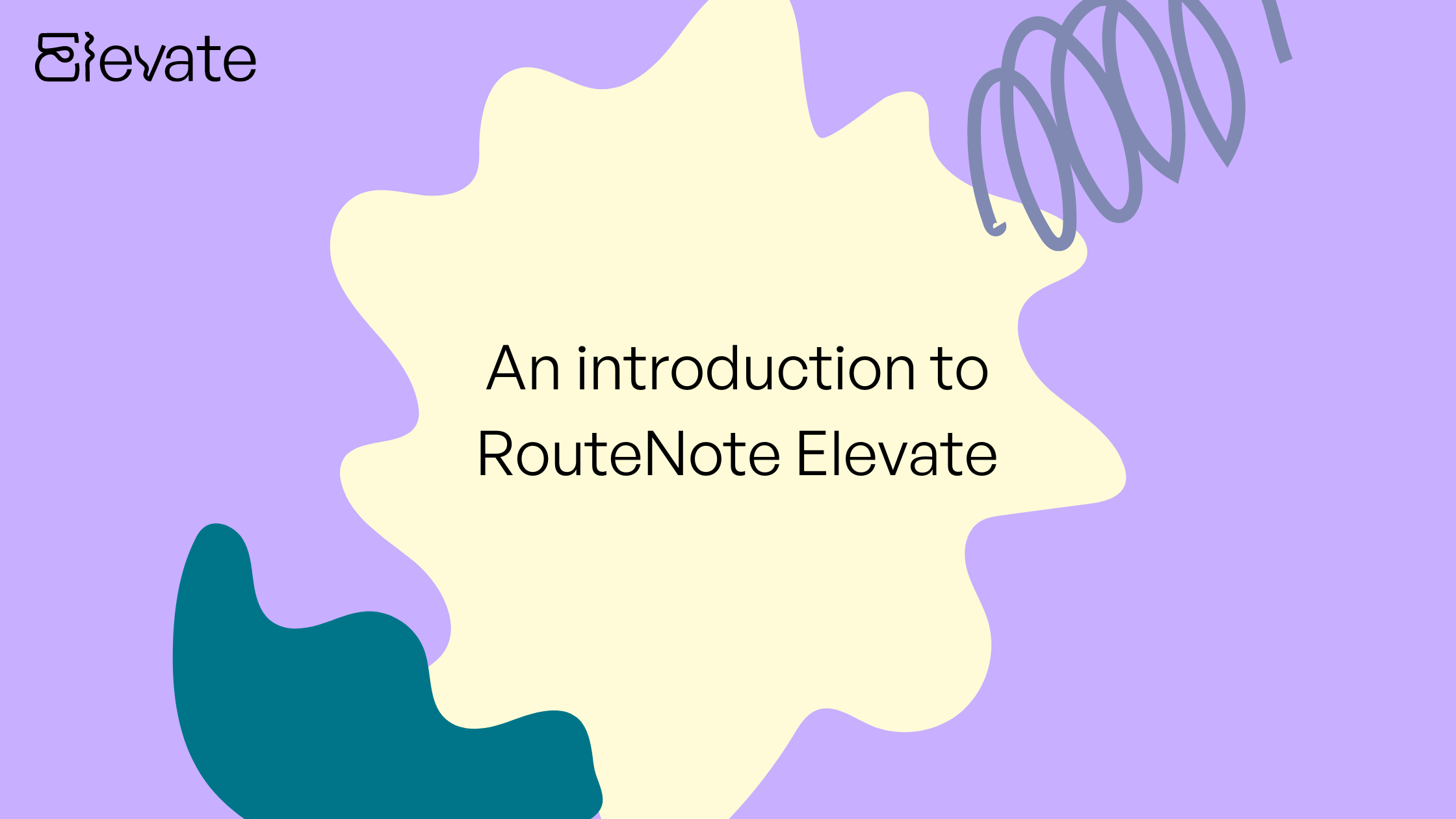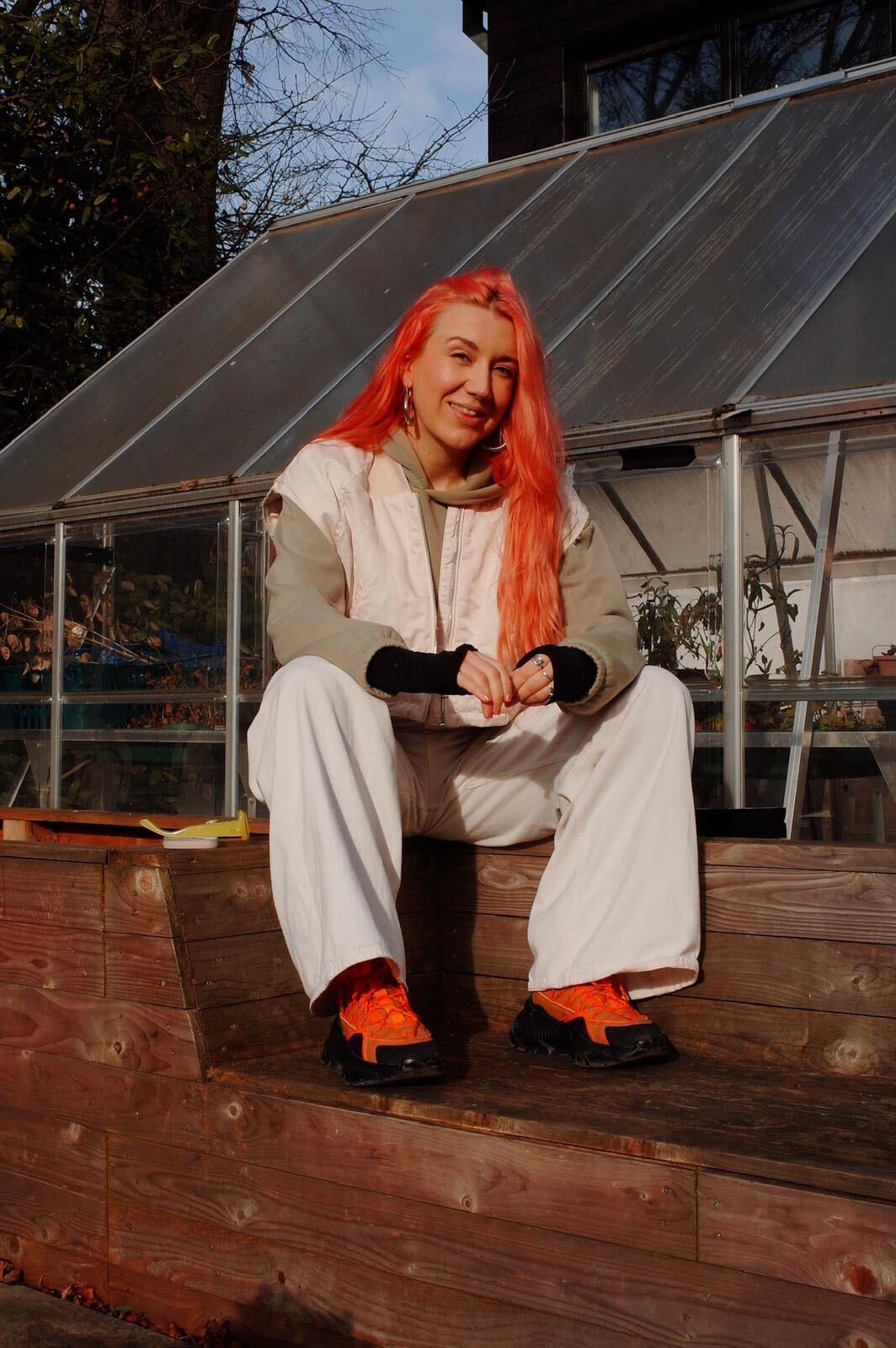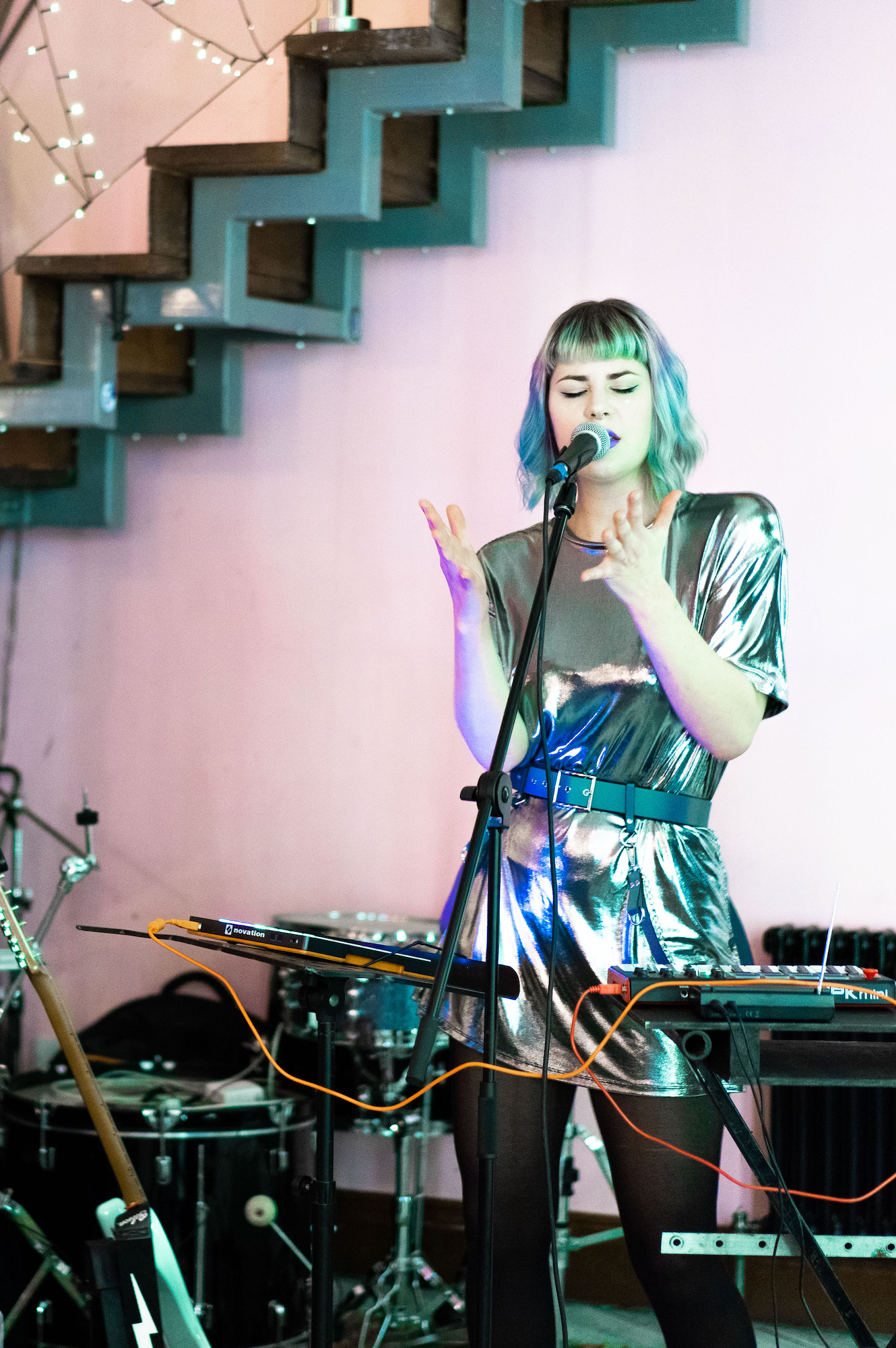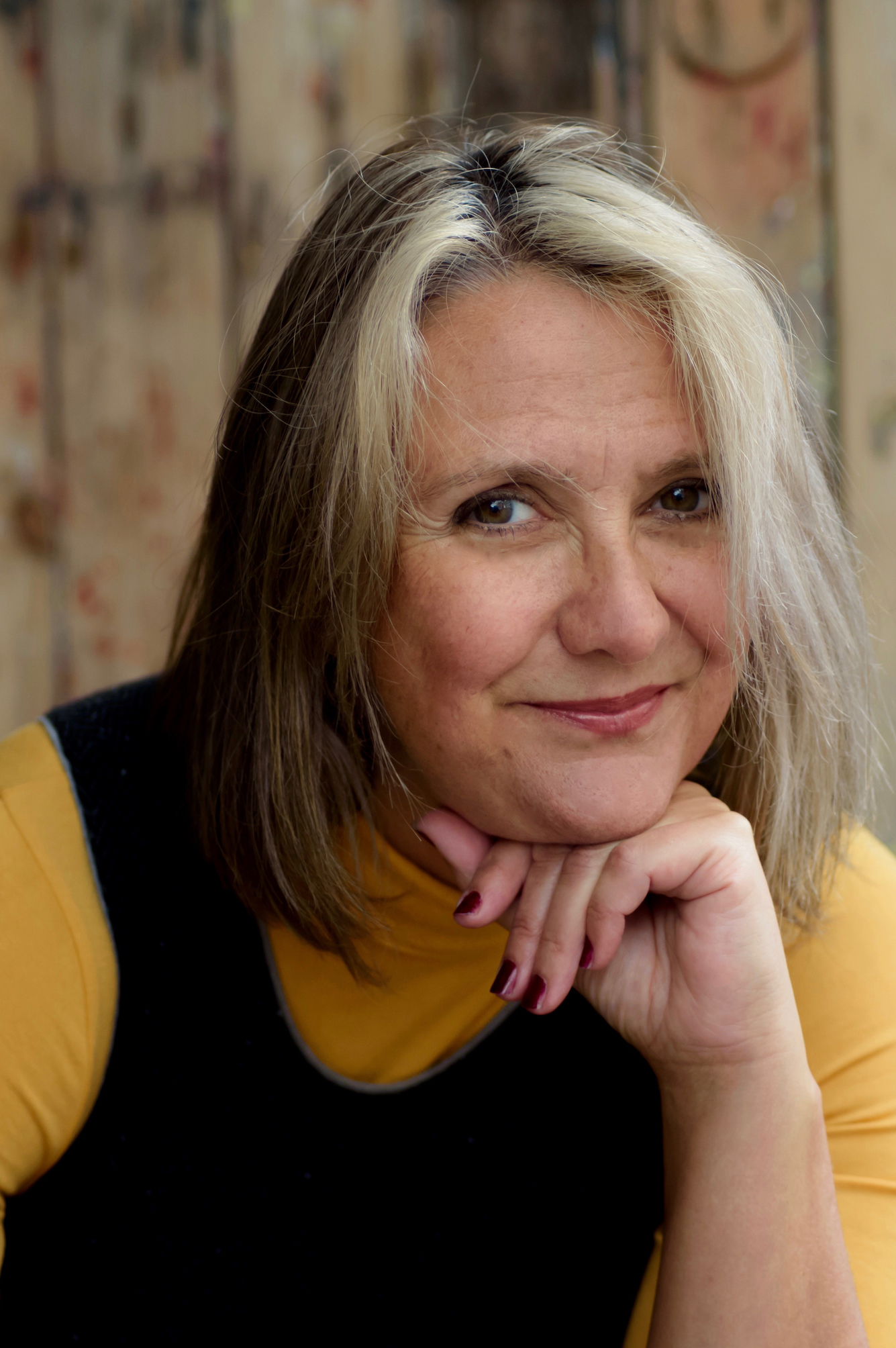An introduction to RouteNote Elevate
Learn all about how RouteNote is striving to promote gender equality within both the company and the wider music industry.
Introducing RouteNote Elevate; an initiative to shine a light on gender inequality in the music industry and start some difficult conversations.
At RouteNote, we want to learn more and educate others on gender inequality in the music industry. It’s time to talk about making the music industry a fairer and more equal place for all, regardless of gender.
Listen deeper.
One statement crops up time and time again in conversations with women and non-binary artists about gender inequality in the music industry – there are deep-rooted discriminations you may not have noticed until somebody voices them. And then, it’s all you can hear.
The music industry is a heavily male-dominated sector; at all levels, in most rooms. At RouteNote, our mission is to offer equal opportunities to all artists, regardless of whether they are part of the biggest global labels or not. We endeavour to extend this mission to provide equal opportunities to artists and label owners of all genders as well. Our aim is to learn what we as a company and individuals can do to help close the gender gap in the music industry.
Now, we’re inviting you to learn along with us.
Table of Contents
Introducing RouteNote Elevate
What to expect from RouteNote Elevate
Do performers feel safe?
Stereotyping & damaging assumptions
Educational barriers in music technology
The importance of role models
Dangers of virtue signalling
Positive action?
Introducing RouteNote Elevate
RouteNote Elevate’s key initiative is to encourage discourse around gender disparity in the music industry. We want to talk about the how, why and where of the issue. We want to move forward with curiosity and a passion to create change, whilst we present facts and evidence and provide a source of information for people of all genders to broaden their knowledge.
As a company, we are aware we’re well-placed to use our position to uplift talented voices that aren’t offered as many opportunities because of their gender. Crucially, in no way does this project aim to exclude any gender.
A mere glance at studies on women and gender-expansive people in the music industry uncovers dire statistics, and you can’t argue with cold, hard numbers.
What to expect from RouteNote Elevate
The RouteNote Elevate initiative features interviews exploring the context behind data, and why data about gender in the music industry is so important. There’ll be a focus on building playlists featuring women and non-binary artists, as well as professionals in the music industry. Plus, lots of information on where to go for further education.
So deep are the internalised assumptions we all make around gender in the music industry, we sometimes don’t even realise we’re doing it.
Our first objective is to build a background of understanding, and venture beyond raw statistics. And so we kick off with a trio of interviews featuring three women who offer perspectives from three different areas in the music industry – producing, performing, and academia.
Songwriters and producers, Caitlin Stubbs and Fran Minney, and academic and EDM DJ, Professor Samantha Parsley all have shared their expertise and experiences which overlap between our separate discussions.
“I’m really glad to get these discussions in a tangible form because it seems I have these conversations almost every day at the moment,” said Caitlin Stubbs when we spoke to her about being a woman in the music industry. “Once you start talking outside of your bubble, you make your way to these ideas that you wouldn’t have had on your own.”
These interviews show that amongst the doom and gloom, there are also extraordinary successes to celebrate, supportive communities of people from all genders lifting each other up, and hope for the future. Something we want to add to through RouteNote Elevate.
There are, however, serious barriers to gender equality in the music industry.
Women and non-binary performers don’t feel safe
Women or non-binary artists and performers feel unsafe and face harassment at a rate far greater than that of men. Samantha Parsley found in her research that women musicians are constantly wary that the man they’re collaborating with is either going to make a move on them or wants to harm them.
Fran Minney described inappropriate touching on stage. “Take these things seriously,” she urged venues and event organisers. Time and time again at gigs and in studios victims are scared to speak up, for fear of losing work.
Stereotyping and damaging assumptions breed self-doubt
Aside from the very real physical and emotional dangers, just as damaging are the everyday microaggressions. As Parsley put it, “It’s very hard to be ‘the only one in the room’ and feel you belong.”
The 2020 UK Music Diversity Report revealed that women occupy 65% of entry-level roles in the U.K. music industry, but only a third of them are in senior management, executive-level roles. In an industry where men outweigh other genders, women are almost always the minority in a creative or business setting like a songwriting session or a record label meeting. Only 14% of composers or songwriters signed to publishers are women. But that’s a more positive figure than the number of producers who are women or non-binary. Parsley revealed that it doesn’t matter which study you reference – on average, the figure for the number of producers in music who identify as women or non-binary is only between 3-10%.
As working writers and producers, both Minney and Stubbs shared a feeling of imposter syndrome, the constant reminder that “you’re lucky to be here.” The women described a condescending attitude from men in creative spaces and outright mocking of their technical abilities. Minney spoke of the existence of an “internalised fear that my work is going to be judged more harshly because I’m not a man,” which delayed her from beginning to produce music.
What Parsley did enthusiastically note, however, is that in an all-women space, “There’s generally just a sense of togetherness, inclusion, equality. You don’t feel daft asking questions, you don’t have to worry about looking stupid in front of guys who are either super confident or patronising.” This was echoed by Minney, who said that in women-only spaces it feels safer to make a mistake. Caitlin Stubbs agreed, mentioning that “a network where you feel safe, and respected and valued for who you are, is the biggest confidence-gifting thing.”
Educational barriers in music technology for women and non-binary artists
Through a free music distributor, like RouteNote, anyone can upload their music online. But first, you have to learn to record or produce that music. A common theme in our interview series was the masculine nature of technology. Lost in the Mix, a 2023 report from Fix The Mix, found that women and non-binary people claimed less than 5% of the tech credits for the most streamed songs of 2022. Women and non-binary people made up 187 of the total 3,781 credits on the 757 songs surveyed. Even when learning music production from YouTube, tutorial presenters are generally white and male.
As Parsley pointed out, “Electronic music production is a very technical thing, and technology affirms a male identity and defies traditional social ideas about femininity.” In short, women are put off before they’ve even got started.
The importance of role models
Identifying with people in positions of power is inspiring. Women and non-binary artists need role models in positions of leadership in the music industry, as well as successes to aspire to. As Parsley said, “It’s much easier to be confident when you are among like-minded and welcoming others.”
If it’s unpleasant at the bottom, with unsafe spaces and condescending attitudes to contend with, it is unsurprising that women are less likely to rise to the top. Whilst the study Inclusion in the Recording Studio? by Stacy L. Smith and the USC Annenberg Inclusion Initiative reported that 30% of artists on the Billboard Hot 100 2022 chart were women, an improvement on 23.3% in 2021, it nevertheless concluded there was much work to be done.
It is tempting, and perhaps lazy, to suggest any high-profile, high-earning woman artist is evidence of there not being a gender pay gap problem in the music industry. For every high-earning woman in the music industry, there is a frustrated congregation of low to middle-earning women and non-binary people behind them.
The dangers of virtue signalling
Meanwhile, accusations of virtue signalling are levelled at pushes for diversity, and at RouteNote we are keen to understand more about this. There are thorny questions to be asked around positive discrimination, e.g. questions relating to a woman being given opportunities simply for identifying as a woman, over a man with the same qualities.
Some women and non-binary people working in music find it patronising to be offered extra help because of their gender and proudly own the woman producer label, for example. As Parsley pointed out, for every confident woman producer who fought their way to the top, there are hundreds of others who are scared and don’t know where to start.
What positive action will make things fairer for women and non-binary artists?
Things are improving for women and non-binary people in the music industry. Within RouteNote Elevate we are dedicated to highlighting organisations that lift up women and gender-expansive people in the music industry. Keep an eye out for reporting on the latest news updates, highlights from data reports, and profiles of key players working towards equality in the music industry.
There are countless organisations that offer funding and support to women and non-binary artists. They’re all doing fantastic work, from Women in CTRL to big organisations like PRS for Music with projects aimed at gender issues. Alongside this, how can companies like RouteNote support women and gender-expensive artists?
The important thing is to start the conversations in the first place. These are issues that even women and non-binary people themselves may not realise are problematic and deep-rooted. Caitlin Stubbs describes a moment where something clicked in her mind, suddenly realising “This is because I am a woman.”
After an initial realisation, it becomes apparent in all scenarios. This might seem pessimistic or obsessive but the women we spoke to described it as a relief – the realisation that the lurking feelings of injustice were not simply in their heads.
Not just ticking boxes
All too often, pushes for diversity within corporations are a minimal effort followed by companies patting themselves on the back. An event might book one woman, subsequently turning down others as though that box has been ticked.
Samantha Parsley identified the need to make sure creators are properly credited. She also highlighted the importance of ensuring women and gender-expansive artists are rewarded and recognisable to others like them looking for role models. She also insisted on the need to “Involve senior women in positions of expertise, on conference panels and judging panels, as music production teachers. We need to de-gender the curriculum and use material written by women, and content produced by women.”
Levelling the playing field is up to everyone in positions of power: labels, publishers, agents, promoters, managers, and distributors like RouteNote. Our intention is for RouteNote Elevate to be an ongoing initiative, not a quick fix or a small project that claims to have explored all the questions that need answering about gender in the music industry.
From now on, look for the RouteNote Elevate badge to learn more about gender diversity in the music industry, and discover loads of diverse and incredible artists.



